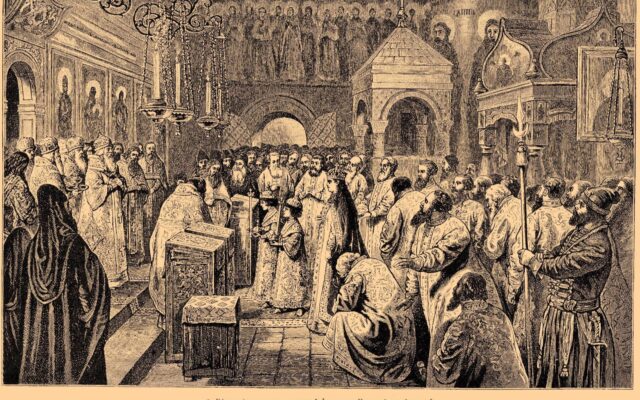Robin Elizabeth Rogers, the daughter of ‘singing cowboy’ Roy Rogers and ‘queen of the West’ Dale Evans, was born with Down syndrome in August 1950. She died just two days short of her second birthday.
After her death, Robin was immortalised in Angel Unaware, Evans’ account of her daughter’s life.
Written from the point of view of Robin as she reports back to God about her mission on earth, the book describes how everything – from her traumatic birth to her untimely death to her mother’s decision to return to work – is part of God’s plan (both parents were devout Christians).
This plan was apparently to use Robin’s disability to destroy the Rogers’ pride and give them an appreciation for Christ’s suffering, and thus bring them closer to God – ‘transforming the lives of the Roy Rogers family’ through her ‘appalling handicap’.
The impact her short life had on the lives and wellbeing of not only the Rogers family but also children with learning disabilities and their families throughout the US would be evident for decades to come.
‘Take her home and love her’
When Robin was born, there was still much stigma attached to having a child with learning disabilities.
Although the influence of America’s eugenics movement had sharply declined after the Second World War, the shame it had created by linking learning disability with various forms of social deviance had persisted, and learning disabled children were still seen as something families had to keep secret.
This stigma was fuelled by an increased focus on the family in this period, to which children with learning disabilities were seen as posing a threat.
Parents (especially mothers) were told that their desire to keep a learning-disabled child at home was selfish and misguided, as it would inevitably mean husbands and any ‘normal’ children would be neglected, leading to family breakup. They were urged to place children in institutions to avoid this – the earlier the better to avoid attachment forming between parents and child. For all their wealth and stardom, the Rogers’ experience was no different.
Angel Unaware recounts the reluctance of embarrassed nurses to tell Evans and Rogers about Robin’s condition at her birth, and the awkward silences that followed any proud parental boasting.
Subsequently, they endured a barrage of unfeeling advice from doctors telling them to place Robin in an institution for the sake of other family members.
The one striking exception was the doctor who attended the birth, who urged them to ‘take her home and love her. Love will help more than anything else in a situation like this – more than all the hospitals and all the medical science in the world.’
So Robin was taken home, and loved.
Roaring rodeo success
Believing it to be her mission to tell Robin’s story, Evans got Angel Unaware to press in 1953, despite rejections from several publishers. It became a bestseller, with all royalties going to the National Association for Retarded Children (NARC). Its simple message resonated strongly with ordinary American families, as shown by the thousands of letters Evans received.
Moreover, at their autumn 1953 rodeo, Evans and Rogers were delighted to see that among the hordes of cheering children in the audience were ‘hundreds of boys and girls with Down syndrome, all kinds of kids with disabilities and handicaps’, an unusual sight at a time when these children were more likely to be kept hidden.
These families kept coming to the safe space the Rogers had created, buoyed by the experience of meeting other families in the same position.
That is not to say that Angel Unaware single-handedly destigmatised having a learning-disabled child in 1950s America. Change was already afoot, and the book was published during an upsurge in parental advocacy groups, such as NARC. Another high-profile person with a learning-disabled child, novelist Pearl S Buck, had written about her experience in The Child Who Never Grew, published in 1950.
The Rogers family were also privileged in a way some found exclusive. When they decided not to institutionalise Robin, they built a house for her and her nurse on their ranch, an option not open to most people.
Similarly, their belief that Robin was a gift from God and they were blessed to be part of his plan could be too abstract for those dealing with day-to-day reality.
Nevertheless, the impact of this short, heartfelt book cannot be overestimated. Angel Unaware showed that anyone, no matter how privileged, could have a learning-disabled child and that child could be celebrated, without shame, at the heart of family life.
Further reading
Evans Rogers D (1953) Angel Unaware. London: Marshall, Morgan and Scott
Rogers R, Evans E (1994) Happy Trails: Our Life Story. New York: Fireside
Garrison M (1956) The Angel Spreads Her Wings. The Inspiration of Angel Unaware and the Influence of the Roy Rogers Family on the American Home. Westwood: Revell
Noll S, Trent Jr JW (eds) (2004) Mental Retardation in America: a Historical Reader. New York and London: New York University Press




